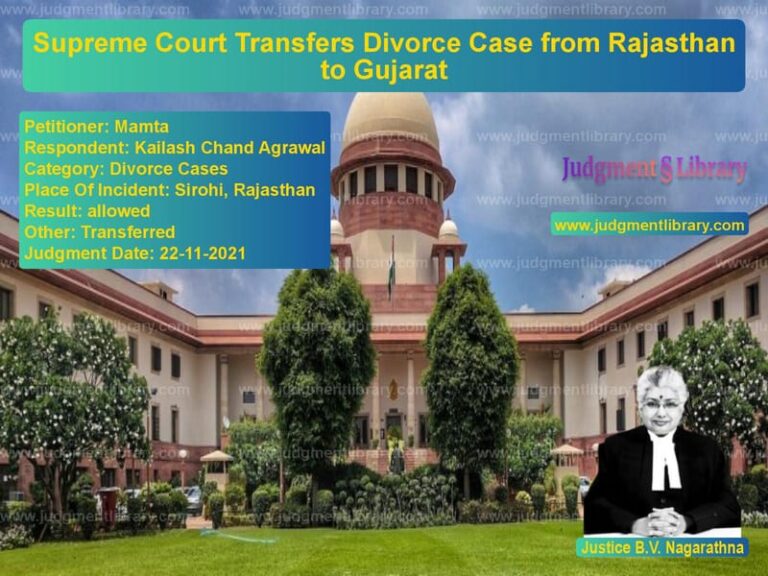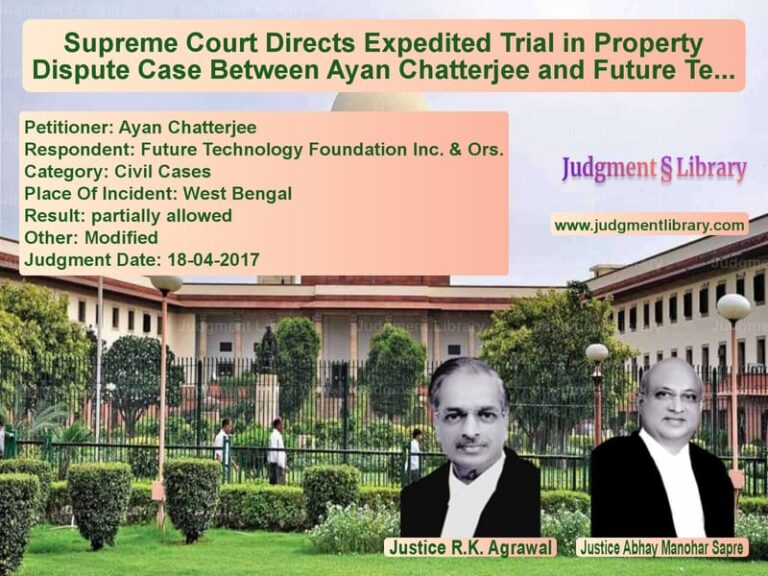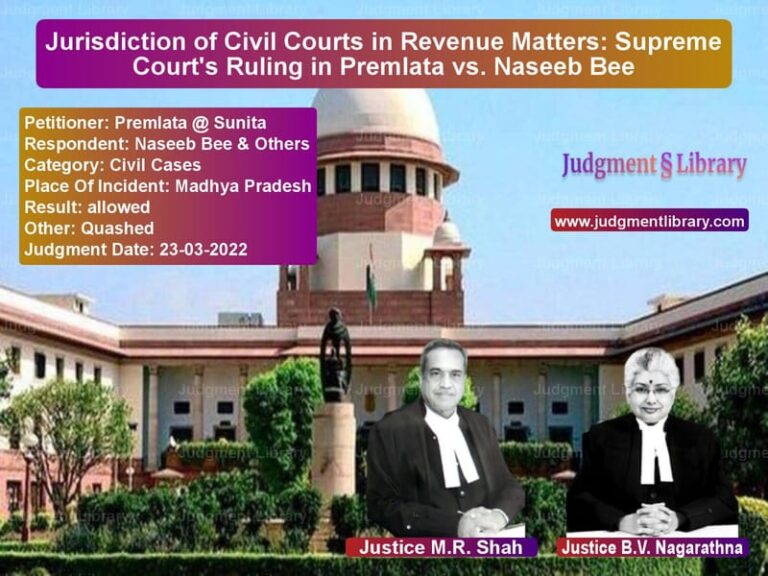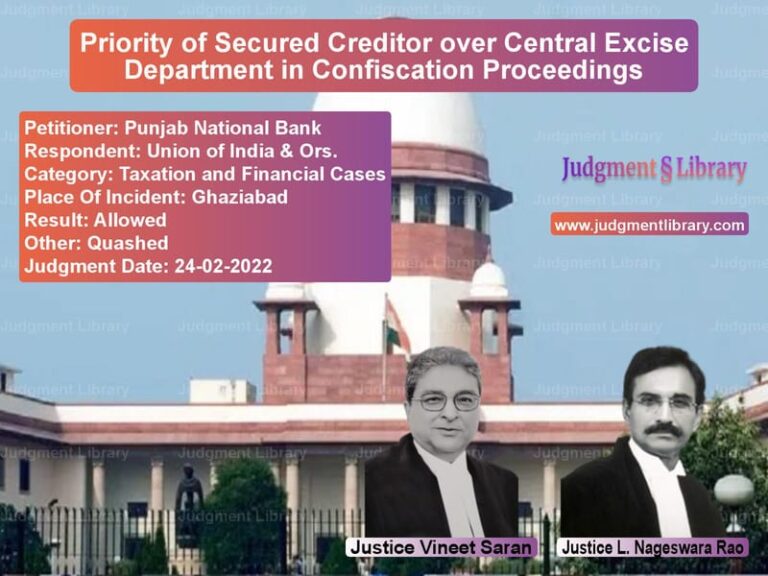Supreme Court Clarifies Disciplinary Proceedings Rules in Jharkhand Civil Service Case
The Supreme Court of India recently delivered a significant judgment in the case of The State of Jharkhand & Ors. vs. Rukma Kesh Mishra, addressing the legality of disciplinary proceedings initiated against a civil service officer. The case revolved around whether the charge-sheet issued to the respondent required explicit approval from the Chief Minister of Jharkhand. The judgment provides crucial clarity on the procedural requirements for disciplinary actions against government servants under Article 311 of the Constitution and relevant service rules.
Background of the Case
The respondent, Rukma Kesh Mishra, was a civil service officer in Jharkhand accused of misconduct, including financial irregularities and forgery. Disciplinary proceedings were initiated against him in 2014, culminating in his dismissal from service in 2017. Mishra challenged his dismissal before the High Court, arguing that the charge-sheet lacked approval from the Chief Minister, the competent authority. The High Court quashed the dismissal, leading the State of Jharkhand to appeal to the Supreme Court.
Key Legal Questions
The Supreme Court was tasked with determining:
- Whether the charge-sheet required explicit approval from the Chief Minister.
- Whether the High Court was justified in quashing the dismissal order on procedural grounds.
- The interpretation of Article 311 of the Constitution and relevant service rules.
Arguments Presented
Arguments by the Appellants (State of Jharkhand):
Mr. Rajiv Shankar Dwivedi, learned counsel for the appellants, contended:
“The High Court erred in quashing the dismissal order solely on the ground of lack of approval for the charge-sheet. The Chief Minister had approved the initiation of disciplinary proceedings, which included the draft charge-sheet. The procedural requirements under the Jharkhand Government Servants (Classification, Control and Appeal) Rules, 2016, were duly complied with.”
Arguments by the Respondent (Rukma Kesh Mishra):
Dr. Manish Singhvi, learned senior counsel for the respondent, argued:
“The charge-sheet was invalid as it lacked explicit approval from the Chief Minister, the competent authority. The decisions in Union of India v. B.V. Gopinath and State of Tamil Nadu v. Promod Kumar clearly establish that such approval is mandatory. The High Court rightly interfered to protect the respondent’s constitutional rights under Article 311.”
Supreme Court’s Analysis
The Supreme Court meticulously examined the legal framework and precedents. Key observations included:
Applicability of Precedents
The Court distinguished the cases relied upon by the respondent, noting:
“The decisions in B.V. Gopinath and Promod Kumar were based on specific rules that explicitly required approval for charge-sheets. The Jharkhand Rules, however, do not impose such a requirement. The High Court’s reliance on these precedents was misplaced.”
Interpretation of Article 311
The Court reiterated the settled law on Article 311(1):
“Article 311(1) only guarantees that a civil servant shall not be dismissed or removed by an authority subordinate to the appointing authority. It does not mandate that the disciplinary proceedings must be initiated by the appointing authority itself.”
Procedural Compliance
The Court found that the disciplinary proceedings were validly initiated:
“The Chief Minister’s approval of the proposal to initiate disciplinary proceedings inherently included approval of the draft charge-sheet. There was no procedural infirmity warranting interference.”
Judgment and Relief
The Supreme Court allowed the appeal, setting aside the High Court’s order and restoring the dismissal of the respondent. However, the Court granted Mishra liberty to file an appeal or revision under the relevant rules within one month, waiving the limitation period.
Conclusion
This judgment clarifies the procedural requirements for disciplinary proceedings against civil servants, emphasizing that the absence of explicit approval for a charge-sheet does not invalidate the proceedings if the competent authority has approved the initiation of such proceedings. The ruling reinforces the principle that procedural technicalities should not overshadow substantive justice, especially in cases of proven misconduct.
Petitioner Name: The State of Jharkhand & Ors..Respondent Name: Rukma Kesh Mishra.Judgment By: Justice Dipankar Datta, Justice Manmohan.Place Of Incident: Jharkhand.Judgment Date: 27-03-2025.
Don’t miss out on the full details! Download the complete judgment in PDF format below and gain valuable insights instantly!
Download Judgment: the-state-of-jharkha-vs-rukma-kesh-mishra-supreme-court-of-india-judgment-dated-27-03-2025.pdf
Directly Download Judgment: Directly download this Judgment
See all petitions in Disciplinary Proceedings
See all petitions in Termination Cases
See all petitions in Public Sector Employees
See all petitions in Judgment by Dipankar Datta
See all petitions in Judgment by Manmohan
See all petitions in allowed
See all petitions in Quashed
See all petitions in supreme court of India judgments March 2025
See all petitions in 2025 judgments
See all posts in Service Matters Category
See all allowed petitions in Service Matters Category
See all Dismissed petitions in Service Matters Category
See all partially allowed petitions in Service Matters Category







